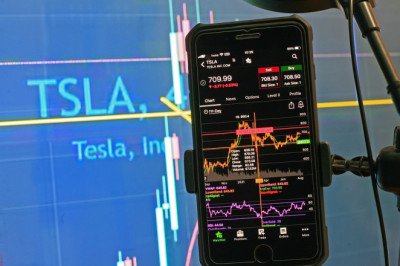views
If you want to be sure that the bags that you are using are biodegradable, there are several things that you need to consider. These include how long the bags will last, whether or not the bags are made of natural materials and what kind of chemicals are used to make the bags.
Reusable bags reduce a person's environmental footprint
Reusable eco bags are a great way to minimize your environmental footprint. But, before you rush out and buy a reusable bag, you need to know what you are getting into.
Reusable eco bags are more durable than plastic bags and hold up well over time. However, they are not as eco friendly as you may think.
Despite the popularity of reusable eco biodegradable bags, a number of studies have found that they may be less eco-friendly than their single-use counterparts. They can also be contaminated by bacteria and viruses.
For example, one study conducted by the University of Arizona found that 12% of reusable bags contained E. coli. This is not surprising considering that most reusable bags are made of petroleum based polypropylene.
The same study found that reusing a reusable bag was actually less environmentally friendly than using a single-use plastic bag. The most obvious reason for this is that reusable bags take up more material than their plastic counterparts.
A more efficient way to minimize your environmental impact would be to reduce the amount of reusable bags you use. To help you out, several companies offer incentives for reducing the number of disposable bags you use.

Source:https://i.pinimg.com
Plastic bags pollute soil and cause damage to marine wildlife
Plastic bags are one of the biggest threats to the oceans and marine life unlike compostable plastic bags. The plastic bags can cause severe health problems, including death, infections, and lacerations. They can also be mistaken for food by many animals.
Some of these plastics break down into smaller pieces, known as microplastics. These are less than five millimeters long. They can contaminate the soil and affect the functions of plants and soil fauna.
Plastic pollution is considered a global crisis, and is estimated to have killed up to a million seabirds each year. At the end of 2013, there were 86 million tons of plastic litter in the world's oceans.
Many animals, especially birds, mistake plastic for food and end up eating it. They are then trapped, suffocated, or otherwise harmed.
When plastics end up in the water, they break down into tiny particles. The surface of these fragments may carry disease-causing organisms, such as bacteria and viruses. They can disrupt hormone systems in invertebrates and vertebrates.
It is estimated that plastics in the water can release millions of toxic chemicals into the atmosphere. Some researchers estimate that there could be as much plastic in the seas as there are fish by the year 2050.

Source:https://i.pinimg.com
Compostable trash bags turn to compost
Compostable eco bags are a great way to turn your trash into something useful. They are made from plant starch and are biodegradable. They are also certified by the Biodegradable Products Institute (BPI), a third party certification group.
Aside from being good for the environment, eco compostable bags are a great way to reduce your plastic footprint. While you won't be able to recycle your plastic waste, you can keep it out of the landfill. They also produce a good quality organic fertilizer.
In order for a compostable eco bag to break down, it needs to go through certain conditions. It should be filled with the right material, such as food waste, nitrogen and carbon. And it should be placed in a compost bin, such as one that you can make at home. You can also take your bag to an industrial composting facility.
While you can make a compost bin at home, it may be difficult to get the bag to break down. You can find a good guide to composting at home on the EPA website.
However, you may want to consider going with a compostable eco bag that is made of 100% post-consumer recycled plastic. While the material isn't as sturdy as regular plastic, it is less wasteful.












Facebook Conversations